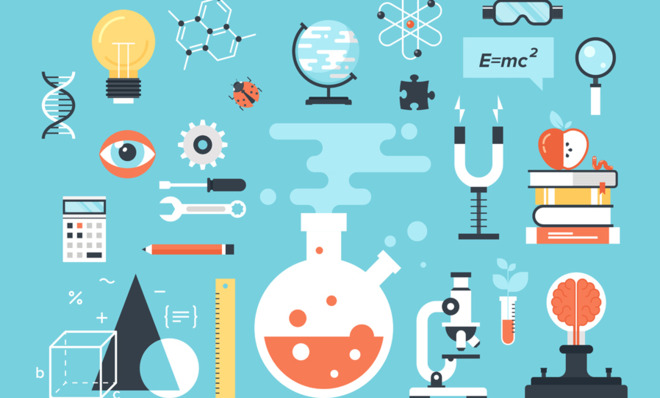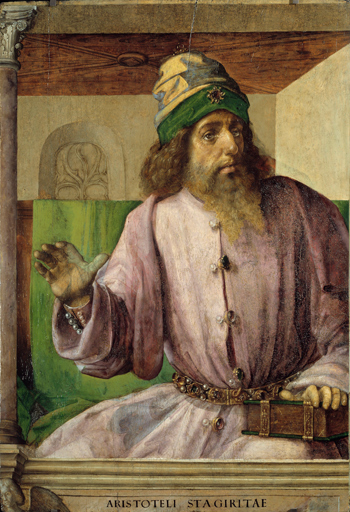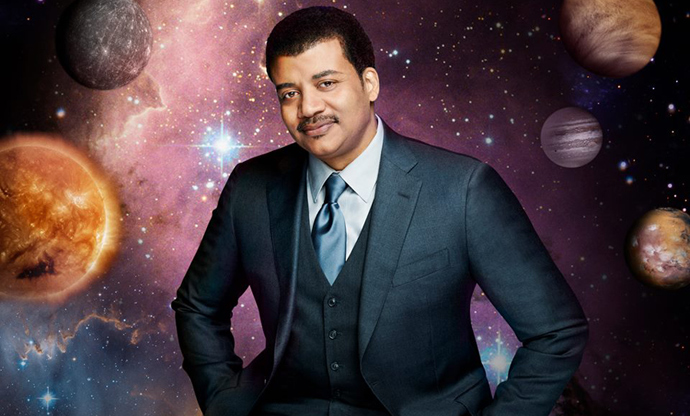How our botched understanding of 'science' ruins everything
Intellectuals of all persuasions love to claim the banner of science. A vanishing few do so properly.


A free daily email with the biggest news stories of the day – and the best features from TheWeek.com
You are now subscribed
Your newsletter sign-up was successful
Here's one certain sign that something is very wrong with our collective mind: Everybody uses a word, but no one is clear on what the word actually means.
One of those words is "science."
Everybody uses it. Science says this, science says that. You must vote for me because science. You must buy this because science. You must hate the folks over there because science.
The Week
Escape your echo chamber. Get the facts behind the news, plus analysis from multiple perspectives.

Sign up for The Week's Free Newsletters
From our morning news briefing to a weekly Good News Newsletter, get the best of The Week delivered directly to your inbox.
From our morning news briefing to a weekly Good News Newsletter, get the best of The Week delivered directly to your inbox.
Look, science is really important. And yet, who among us can easily provide a clear definition of the word "science" that matches the way people employ the term in everyday life?
So let me explain what science actually is. Science is the process through which we derive reliable predictive rules through controlled experimentation. That's the science that gives us airplanes and flu vaccines and the Internet. But what almost everyone means when he or she says "science" is something different.
To most people, capital-S Science is the pursuit of capital-T Truth. It is a thing engaged in by people wearing lab coats and/or doing fancy math that nobody else understands. The reason capital-S Science gives us airplanes and flu vaccines is not because it is an incremental engineering process but because scientists are really smart people.
In other words — and this is the key thing — when people say "science", what they really mean is magic or truth.
A free daily email with the biggest news stories of the day – and the best features from TheWeek.com

A little history: The first proto-scientist was the Greek intellectual Aristotle, who wrote many manuals of his observations of the natural world and who also was the first person to propose a systematic epistemology, i.e., a philosophy of what science is and how people should go about it. Aristotle's definition of science became famous in its Latin translation as: rerum cognoscere causas, or, "knowledge of the ultimate causes of things." For this, you can often see in manuals Aristotle described as the Father of Science.
The problem with that is that it's absolutely not true. Aristotelian "science" was a major setback for all of human civilization. For Aristotle, science started with empirical investigation and then used theoretical speculation to decide what things are caused by.
What we now know as the "scientific revolution" was a repudiation of Aristotle: science, not as knowledge of the ultimate causes of things but as the production of reliable predictive rules through controlled experimentation.
Galileo disproved Aristotle's "demonstration" that heavier objects should fall faster than light ones by creating a subtle controlled experiment (contrary to legend, he did not simply drop two objects from the Tower of Pisa). What was so important about this Galileo Moment was not that Galileo was right and Aristotle wrong; what was so important was how Galileo proved Aristotle wrong: through experiment.
This method of doing science was then formalized by one of the greatest thinkers in history, Francis Bacon. What distinguishes modern science from other forms of knowledge such as philosophy is that it explicitly forsakes abstract reasoning about the ultimate causes of things and instead tests empirical theories through controlled investigation. Science is not the pursuit of capital-T Truth. It's a form of engineering — of trial by error. Scientific knowledge is not "true" knowledge, since it is knowledge about only specific empirical propositions — which is always, at least in theory, subject to further disproof by further experiment. Many people are surprised to hear this, but the founder of modern science says it. Bacon, who had a career in politics and was an experienced manager, actually wrote that scientists would have to be misled into thinking science is a pursuit of the truth, so that they will be dedicated to their work, even though it is not.
Why is all this ancient history important? Because science is important, and if we don't know what science actually is, we are going to make mistakes.
The vast majority of people, including a great many very educated ones, don't actually know what science is.
If you ask most people what science is, they will give you an answer that looks a lot like Aristotelian "science" — i.e., the exact opposite of what modern science actually is. Capital-S Science is the pursuit of capital-T Truth. And science is something that cannot possibly be understood by mere mortals. It delivers wonders. It has high priests. It has an ideology that must be obeyed.
This leads us astray. Since most people think math and lab coats equal science, people call economics a science, even though almost nothing in economics is actually derived from controlled experiments. Then people get angry at economists when they don't predict impending financial crises, as if having tenure at a university endowed you with magical powers. Countless academic disciplines have been wrecked by professors' urges to look "more scientific" by, like a cargo cult, adopting the externals of Baconian science (math, impenetrable jargon, peer-reviewed journals) without the substance and hoping it will produce better knowledge.
Because people don't understand that science is built on experimentation, they don't understand that studies in fields like psychology almost never prove anything, since only replicated experiment proves something and, humans being a very diverse lot, it is very hard to replicate any psychological experiment. This is how you get articles with headlines saying "Study Proves X" one day and "Study Proves the Opposite of X" the next day, each illustrated with stock photography of someone in a lab coat. That gets a lot of people to think that "science" isn't all that it's cracked up to be, since so many studies seem to contradict each other.
This is how you get people asserting that "science" commands this or that public policy decision, even though with very few exceptions, almost none of the policy options we as a polity have have been tested through experiment (or can be). People think that a study that uses statistical wizardry to show correlations between two things is "scientific" because it uses high school math and was done by someone in a university building, except that, correctly speaking, it is not. While it is a fact that increased carbon dioxide in the atmosphere leads, all else equal, to higher atmospheric temperatures, the idea that we can predict the impact of global warming — and anti-global warming policies! — 100 years from now is sheer lunacy. But because it is done using math by people with tenure, we are told it is "science" even though by definition it is impossible to run an experiment on the year 2114.
This is how you get the phenomenon of philistines like Richard Dawkins and Jerry Coyne thinking science has made God irrelevant, even though, by definition, religion concerns the ultimate causes of things and, again, by definition, science cannot tell you about them.

Neil DeGrasse Tyson (Facebook.com/COSMOSOnTV)
You might think of science advocate, cultural illiterate, mendacious anti-Catholic propagandist, and possible serial fabulist Neil DeGrasse Tyson and anti-vaccine looney-toon Jenny McCarthy as polar opposites on a pro-science/anti-science spectrum, but in reality they are the two sides of the same coin. Both of them think science is like magic, except one of them is part of the religion and the other isn't.
The point isn't that McCarthy isn't wrong on vaccines. (She is wrong.) The point is that she is the predictable result of a society that has forgotten what "science" means. Because we lump many different things together, there are bits of "science" that aren't actual science that get lumped into society's understanding of what science is. It's very profitable for those who grab some of the social prestige that accrues to science, but it means we live in a state of confusion.
It also means that for all our bleating about "science" we live in an astonishingly unscientific and anti-scientific society. We have plenty of anti-science people, but most of our "pro-science" people are really pro-magic (and therefore anti-science).
This bizarre misunderstanding of science yields the paradox that even as we expect the impossible from science ("Please, Mr Economist, peer into your crystal ball and tell us what will happen if Obama raises/cuts taxes"), we also have a very anti-scientific mindset in many areas.
For example, our approach to education is positively obscurantist. Nobody uses rigorous experimentation to determine better methods of education, and someone who would dare to do so would be laughed out of the room. The first and most momentous scientist of education, Maria Montessori, produced an experimentally based, scientific education method that has been largely ignored by our supposedly science-enamored society. We have departments of education at very prestigious universities, and absolutely no science happens at any of them.
Our approach to public policy is also astonishingly pre-scientific. There have been almost no large-scale truly scientific experiments on public policy since the welfare randomized field trials of the 1990s, and nobody seems to realize how barbaric this is. We have people at Brookings who can run spreadsheets, and Ezra Klein can write about it and say it proves things, we have all the science we need, thank you very much. But that is not science.
Modern science is one of the most important inventions of human civilization. But the reason it took us so long to invent it and the reason we still haven't quite understood what it is 500 years later is it is very hard to be scientific. Not because science is "expensive" but because it requires a fundamental epistemic humility, and humility is the hardest thing to wring out of the bombastic animals we are.
But until we take science for what it really is, which is both more and less than magic, we will still have one foot in the barbaric dark.
(Top photo: Leemage/Corbis)
Pascal-Emmanuel Gobry is a writer and fellow at the Ethics and Public Policy Center. His writing has appeared at Forbes, The Atlantic, First Things, Commentary Magazine, The Daily Beast, The Federalist, Quartz, and other places. He lives in Paris with his beloved wife and daughter.
-
 Political cartoons for February 12
Political cartoons for February 12Cartoons Thursday's political cartoons include a Pam Bondi performance, Ghislaine Maxwell on tour, and ICE detention facilities
-
 Arcadia: Tom Stoppard’s ‘masterpiece’ makes a ‘triumphant’ return
Arcadia: Tom Stoppard’s ‘masterpiece’ makes a ‘triumphant’ returnThe Week Recommends Carrie Cracknell’s revival at the Old Vic ‘grips like a thriller’
-
 My Father’s Shadow: a ‘magically nimble’ film
My Father’s Shadow: a ‘magically nimble’ filmThe Week Recommends Akinola Davies Jr’s touching and ‘tender’ tale of two brothers in 1990s Nigeria
